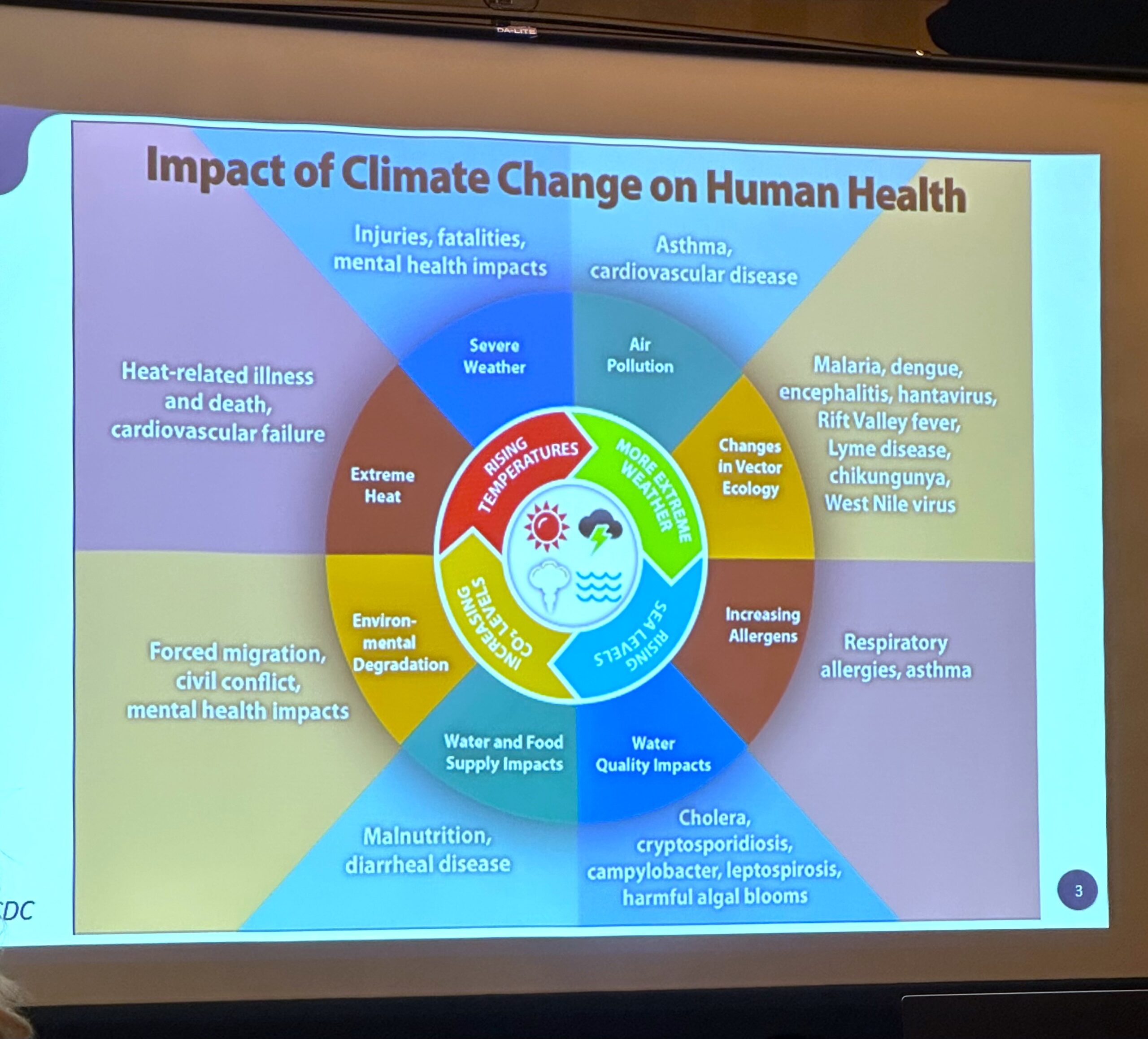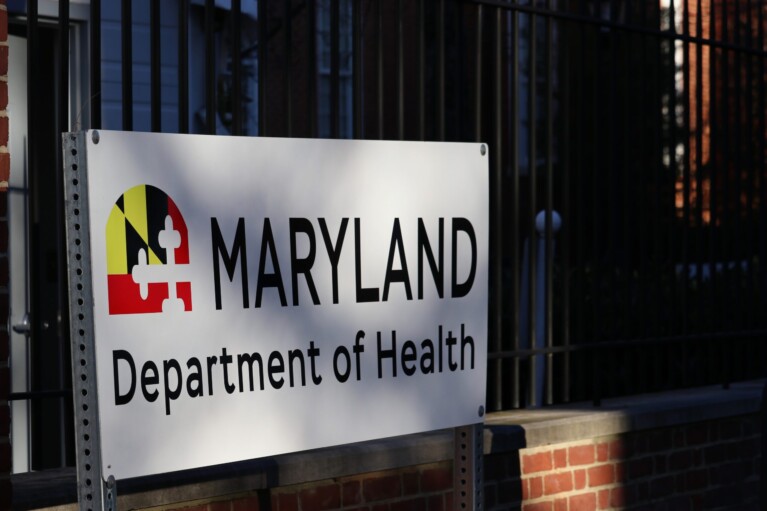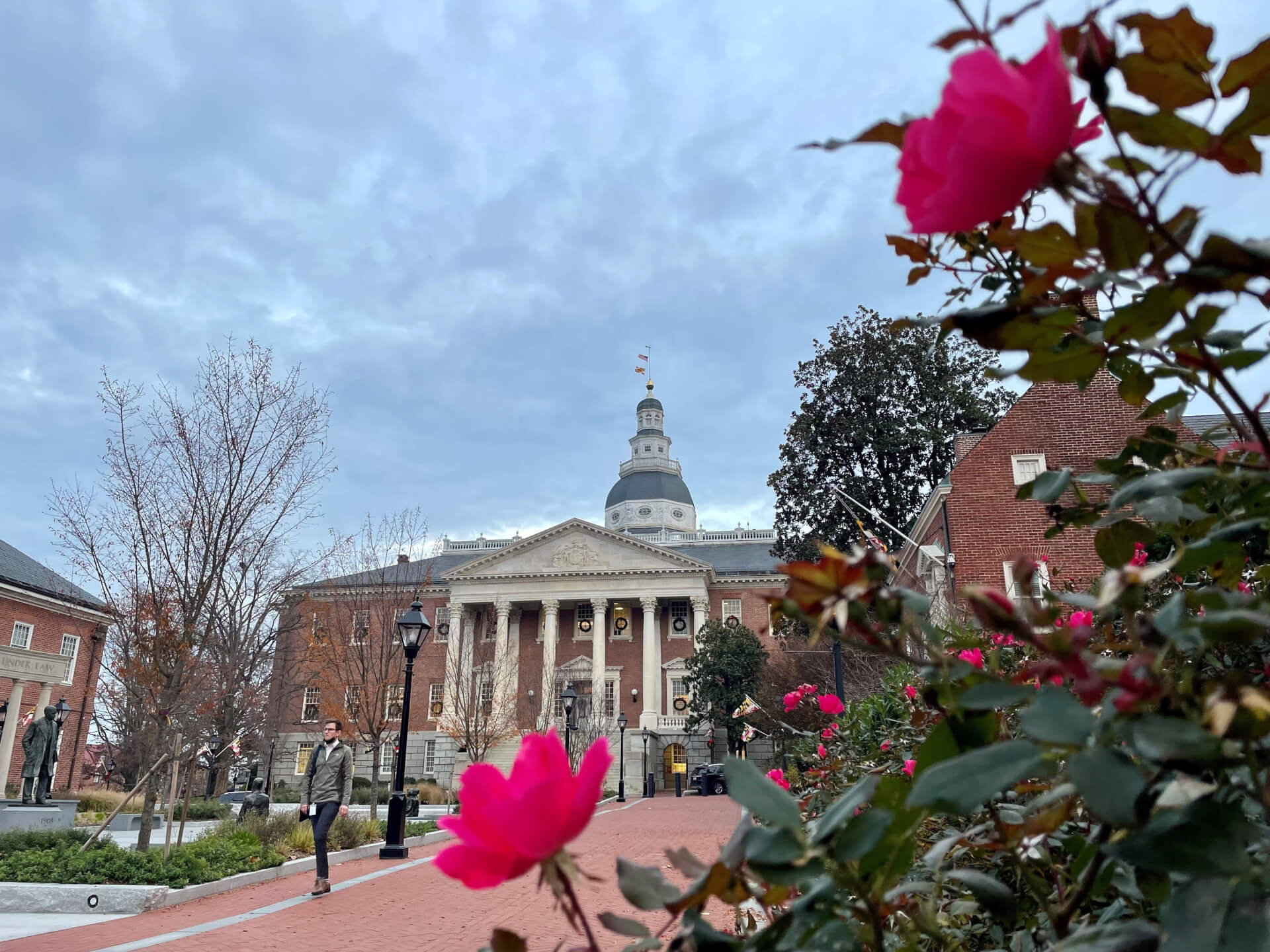Md. health officers: Climate change could create the ‘next pandemic,’ urge local officials to prep now

The COVID-19 pandemic brought the challenges of public health and the transmission of infectious diseases to the forefront of Maryland policy over the last few years. Now, local health officials say that rising temperatures and other symptoms of climate change may usher in the “next pandemic.”
At the Maryland Association of Counties winter conference, being held in Cambridge, local health officers urged county officials to proactively prepare for future major outbreaks by mitigating the effects of climate change.
“The next pandemic — given the globalization of diseases, and understand the fact that zillions of viruses and bacteria exist, and they are becoming more resistant to vaccines — the question is not if there will be another pandemic, but when,” said Gregory William Branch, Baltimore County health officer and director of Health and Human Services.
Branch was joined by St. Mary’s County Health Officer Meenakshi Brewster for the panel. Local health officers and other officials listened in on the discussion, including Baltimore County Executive John Olszewski (D).
Del. Heather Bagnall (D-Anne Arundel) moderated what she called the “very weighty…and concerning” conversation.
“I think it’s very reassuring that we have, not only incredible expertise working the problem, but we have dedicated public officials making sure that they are bringing the resources to solve the problems that we’re going to encounter in the future,” Bagnall said.
Brewster, with St. Mary’s county, said that extreme weather conditions, rising sea levels and other climate change effects can allow diseases to creep in and become the next major health threat.
“Air quality is another component of climate change that has significant impact on health,” she said, referencing the Canadian wildfires that created low air quality in Maryland and other parts of the United States this summer.
“One thing to keep in mind is that air pollution actually causes changes, chemical changes, that then damage your respiratory tract, your lungs and all the other pieces of your body that kind of go alongside. And what that essentially does, that damage then makes the human body more susceptible to infection,” Brewster said.
“That’s something we started seeing during the COVID pandemic. That areas that were dealing with higher levels of air pollution, they may have been noticing more infections related to COVID-19,” she added.
She said that local administrations should track air quality and work to improve it. Local officials could consider restrictions such as “no idling” policies for motor vehicles.
Brewster also said water quality is affected by climate change, which could lead to further pollution and infections.
“Increased rain and rising water leaves leads to increased leaching, of not just chemicals into our drinking water, but also leaching of our wastewater, from septic systems for example,” she said.
Increased water temperatures also lead to increased algal blooms, bacterial growth, and more mosquitos. Extreme weather events can lead to sewage overflows and mold that can lead to other infections.
Ultimately, climate change will likely lead to migration of people fleeing from its effects. That could lead to areas with increased population density and create an environment where it’s easier to transmit emerging diseases, Brewster said. The movement of people will also likely lead to more human to animal contact, which is a major cause of disease emergence in the first place.
Over the course of 2023, the Maryland Department of Health has already issued warnings about harmful effects of low air-quality due to wildfire smoke, the transmission of Lyme disease or other illnesses through tick bites, and a unique “locally acquired” case of Malaria through a mosquito bite.

Baltimore County Health Officer Gregory Branch discusses potential infectious diseases that pose threats to Maryland public health on Dec. 6, 2023. Photo by Danielle J. Brown
But Branch, with Baltimore County, identified five other potential outbreaks that he says health officials should keep an eye on and prepare disease control measures so that county officials aren’t “building the plane as you’re trying to fly it.”
The five diseases he highlighted were Zika virus, influenza, other coronaviruses that evolve outside of COVID-19, hemorrhagic diseases such as Ebola and a category of parasites called “lungworm” that can damage respiratory function.
Regardless of which disease will become the next big threat for Maryland, Branch said public trust in government health officials and policy waned over the course of the COVID-19 pandemic, an issue that could persist in future public health emergencies.
Branch said local governments will need to work to restore public trust and counter messaging issues that lead to vaccine hesitancy and other concerns.
He recommended that local officials work alongside faith-based organizations and community leaders to help rebuild trust in public health measures.
“The same things are going to happen, unless we get positive influences out there. We’ve got to get them out there. I don’t have anyone on my staff who is literally trolling the social media and putting out real information,” he told Maryland Matters. “If you don’t get the information out there, then I think people just listen to the negatives. We’ve got to be able to counteract that as much as we possibly can.”




 Creative Commons Attribution
Creative Commons Attribution